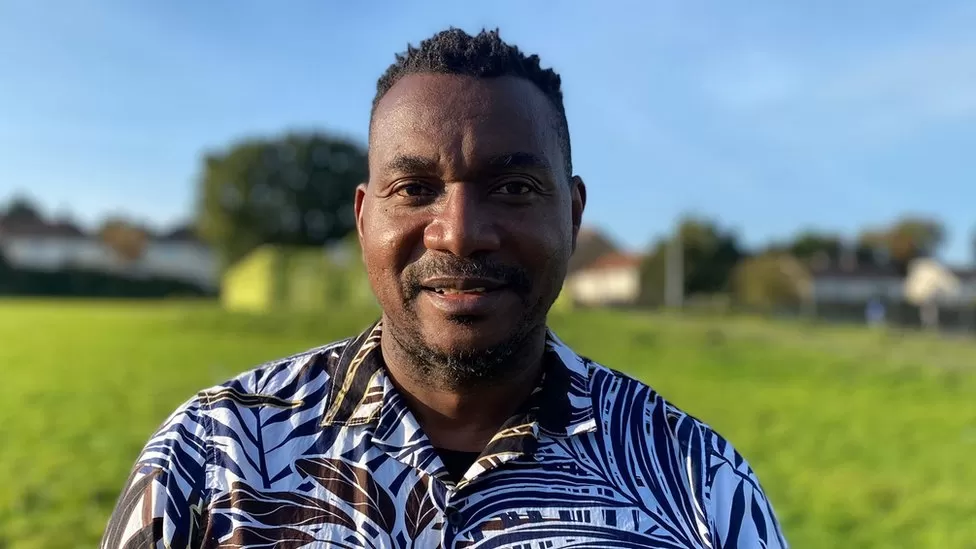A refugee who fled war in west Africa is not the image that springs to mind when you think of the leader of a Welsh language campaign group.
Yet Joseff Ngabo from Ivory Coast has been elected chairman of Cymdeithas yr Iaith, just five years after seeking asylum in Wales.
It makes him the first person not born in Wales to hold the title, as well as the first person of colour to do so.
He said he wanted to be able to speak the local language out of principle.
“I have a principle. That whatever community I live in, whatever country I live in, to speak the language of the country and community,” said Joseff.
He worked in the media and was a rapper in the Ivory Coast’s largest city, Abidjan, where he was “very vocal” and “a big voice”.
Wales gave Joseff Ngabo a “chance to start a new life”, he says
It was his voice “supporting the government against rebellion” during the civil war there which forced him to flee his home in search of safety.
“The rebellion were backed by foreign powers who had the means and the money and they won the war,” he said.
Ivory Coast was split between the government-controlled south and rebels who controlled the north after the civil war in 2002-2003.
A second civil war in 2010-2011 displaced hundreds of thousands of people.
“There was a threat on my life, a threat to me. So I had to leave the country,” he recalled.
“I had to leave my country just for my opinion. It made me very bitter. For many years I was a bitter man.”
Now living in the Rumney area of Cardiff with his family, including two children who go to Welsh schools, Joseff said Wales gave him a “chance to start a new life” and he considers himself Welsh.
Ukrainian refugee children almost fluent in Welsh
Radical measures call as Welsh speakers decline
“I applied for asylum and it was the Home Office that decided to move me to Wales,” he recalled.
“I knew about the country and the rugby team and that beautiful flag with the dragon, but I didn’t know about the language.”
He began learning Welsh “immediately” to help him integrate in the country.
Joseff now encourages other asylum seekers and refugees to learn Welsh
“It does really help. It’s opened a lot of doors. I’ve met so many people… I’ve discovered the Welsh culture,” said Joseff.
His five-year journey to become fluent in the language makes him “very proud”, and he now encourages other asylum seekers and refugees to learn it.
He said some teachers “still have the belief” that learning Welsh might be “confusing” for asylum seekers and refugees.
“But what they forget is that most refugees and asylum seekers already come from a multilingual background, so they can learn many languages,” he said.
Joseff himself is fluent in six.
His first language is French, but he also speaks English, Italian, German, Swahili, “and Welsh now”.
He is full of pride talking about his new appointment at Cymdeithas yr Iaith.
“I’m planning to put as much energy and as much effort to really sensitise people, to show them that the Welsh language is open. It’s open to everyone, whatever your background
“I really want to contribute a lot to the Welsh language, because of what I received from it, and for the Welsh-speaking community, I also want to contribute and give back.”
